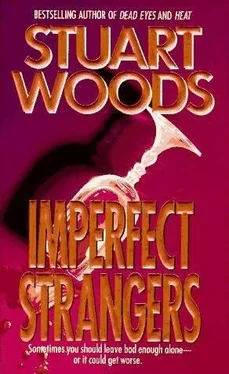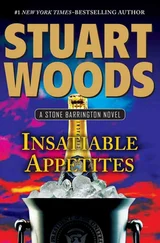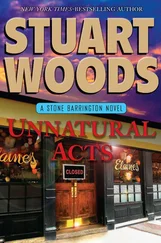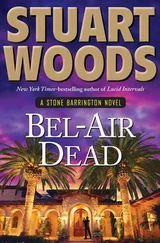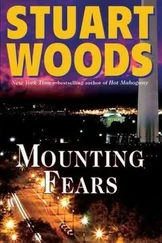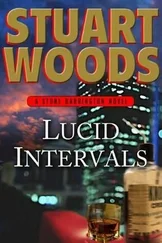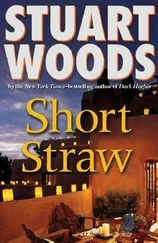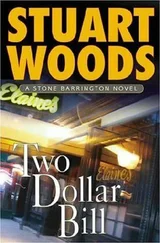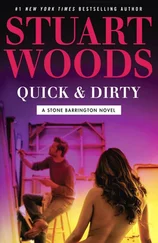"I've driven past there and seen it," Keyes said. "Never been up to the house, though."
"Well, it's a lovely place. Some city decorator had put him in the way of some nice pieces of furniture and carpets, and it looked really good, except for the pictures, which were all cheap reproductions. I told him I thought that a property of that quality should have better things on the walls, and I suggested the next time he came into town, we should get together and talk about it."
"And did he call you?"
"Well, I called him after a bit, and as luck would have it, he was coming to town, so I took him to dinner and then wheeled him by the gallery a bit later."
"Where'd you have dinner?"
"At the Ritz-Carlton's restaurant. I thought it would be just the sort of thing for him-rich surroundings, fine food."
"Fine wines?"
"Oh, yes. I ordered something quite special, as I recall; a LaTour '59."
"How many bottles?"
"Two, I believe. Oh, I had a driver that night; no problems about being at the wheel."
"And you went straight from dinner to the gallery?"
"Well, I believe we stopped in the bar for a cognac. Awfully nice bar at the Ritz."
"Yes, I know it well. So then, after how many cognacs?"
"Oh, only one; we had some business to discuss, after all."
"So then, after one cognac, you went to the gallery?"
"That's right. We had some lovely things at the time, and Larsen was immediately drawn to the Wylie, ah, after I'd pointed it out to him."
"And did he buy it on the spot?"
"He did, and one other, smaller picture, as well; a horse thing by a lesser-known painter, after Stubbs."
"And how much did he pay for the two pictures?"
"Forty for the Wylie, twenty-five for the smaller picture, I believe."
"Would you consider those fair prices?"
"Oh, very fair, I should say, very fair."
"Peter, how did you come by the Wylie?"
"Fellow in London I buy from now and then."
"A reputable gallery?"
"Not a gallery, as such. Fellow has a stall at the Chelsea Antiques Market, you know, in the King's Road?"
"Mmmm, yes. An honest fellow, do you think?"
"As honest as the next stallholder, I suppose."
"How much did you pay him for the picture?"
Martindale pursed his lips. "Ah, well… I'm not sure I recall precisely-"
"Peter, this is extremely important. It will come up in court, I promise you, and you'll have to back it up with records, receipts, canceled checks, that sort of thing."
"Oh, well, I believe it was six hundred."
"Pounds?"
"Yes, that was it, six hundred quid."
"Which is, in dollars?"
"Oh, nine hundred, give or take."
"So you made a profit of thirty-nine thousand, one hundred dollars?"
"Well, there was shipping, insurance, etcetera."
"A very large profit, nonetheless."
"Well, yes, a fortunate profit, shall we say? I mean, the stallholder didn't know it was a Wylie, did he?"
"Peter, does this stallholder, by any chance, paint?"
"Believe he does, a bit."
"Peter, if I were Harry Keller, and I telephoned a London firm of private investigators and had this fellow looked at, might I find that he has, in the past, dabbled in forgery?"
"Oh, well, lots of those fellows about, you know? Look here, Paul, it really is going to be their expert's word against mine, you know, and I do have an awfully good reputation at this sort of thing."
"I know you do, Peter, and I want you to be able to hang on to it." He picked up a document from his desk and handed it to Martindale. "This fellow is in charge of English paintings at the San Francisco Museum. Please read what he has to say."
Martindale read the document. "As I say, Paul, his word against mine."
"Peter, are you familiar with"-he referred to another document-"a Sir William Fallowfield?"
"Why, yes, I believe he's a mucketymuck at the Tate Gallery, isn't he?"
"He appears to be, if my information is correct, the world's leading authority on nineteenth- and early twentieth-century English painters."
"He might well claim to be, I suppose."
"Well, it seems that Harry Keller is planning to air freight the Kinsolving Wylie to London for Sir William's inspection. I expect they will have an opinion by the end of the week."
Martindale licked his lips and looked at his shoes. "Well, if they're able to corral that old fart, I don't suppose it would look too good for us, would it?"
"Not if he takes their position. I should point out, too, Peter, that there are more technical ways to examine the painting-the kind of paint used and its age, that sort of thing. I'm sure, being in the business for as long as you have been, you're aware of some of these procedures."
"Yes, yes." Martindale was still looking at his shoes.
"Peter, if we go to trial on this, and we make it your word against their experts' word, well, you'll not only have to testify, you'd have to undergo cross-examination by Harry Keller."
Martindale looked up at him. "I'm not afraid of that shyster," he said.
"What Keller will do-indeed, what I would do, were I representing the plaintiff-is first to refer to your own testimony about your experience and qualifications to judge a painting. Then refer to the qualifications of his own experts, including those of Sir William Fallowfield, and he'll ask how you think you stack up to them. Then he'll read you some of their opinions, and he'll ask you how you, who have already characterized yourself as expert, could possibly mistake the painting in question as an authentic Wylie. Then he'll suggest-and certainly I, myself, don't believe this-that you got Lars Larsen drunk and sold him a fake. And, Peter, I'm very much afraid that, by the time his cross-examination has ended, I will have lost my case and you, your reputation."
"What are you suggesting I do?" Martindale asked.
"Peter, do you have, say, a hundred thousand dollars in ready cash?"
Martindale shook his head. "No. Maybe twenty, and that's operating capital."
"Well, since the divorce settlement you have been debt-free, have you not?"
"Yes, well, more or less."
"Then you shouldn't have any trouble collateralizing a loan of a hundred thousand, should you?"
"I suppose not."
"Well, I think you should stop in at your bank and arrange such a loan. I'll make an offer of, say, eighty-five thousand to Keller, but I think it's likely he'll insist on a total figure of something around a hundred."
Martindale was staring at his shoes.
"Peter, it's really not so bad; after all, the profit you made on the picture will cover a large part of the settlement."
"Oh, all right," he said, finally.
"Good. I'm sure this is the way to go, in the circumstances."
"In the circumstances, I suppose so," Martindale replied. He made to get up.
"Just a moment, Peter, there's something else."
Martindale sat back down. "What else?"
"Keller and his client have insisted-and Keller has been very firm about this-that you issue a statement of admission to the press."
"Jesus Christ, Paul! I can't do that! I'd never be able to earn a living again!"
Keyes raised a cautionary hand. "Just listen. I've drafted something that I think might do the trick and still preserve your professional standing."
"Let's hear it."
Keyes read from a document on his desk. "It has come to my attention that the authenticity of a painting sold by my gallery has been questioned. It has always been my policy to stand behind each work of art that passes through my hands, and, accordingly, I have taken back the painting in question and reimbursed its owner not just the original price paid, but the appreciated value of an authentic painting by the artist. Honesty compels me to do no less, and I hold out the same offer to any other client of mine who feels he has any reason to question the authenticity of any painting I have sold.
Читать дальше
